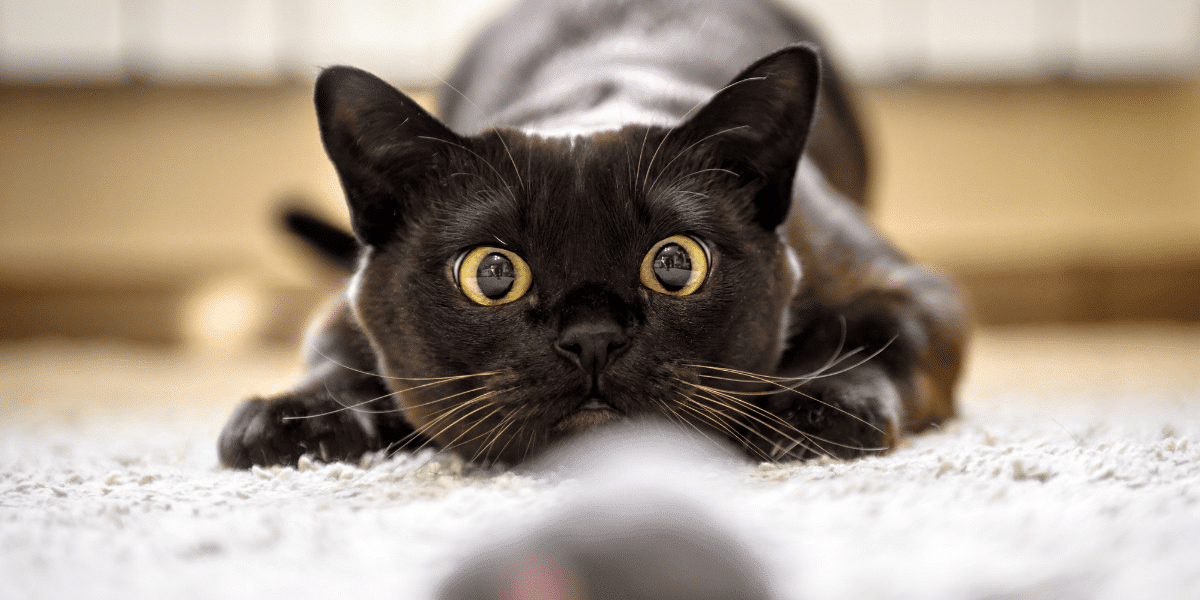Reasons Your Cat Runs Around the House at Night
Cats are known for their quirky behaviors, and one of the most common is their sudden bursts of energy at night. If you’ve ever wondered why your cat seems to turn into a wild predator once the sun goes down, you’re not alone! This phenomenon, often referred to as “midnight zoomies,” has several underlying reasons. Let’s explore why your feline friend becomes extra active when you’re trying to sleep.
Natural Hunting Instincts
Cats are natural hunters, and even though your domesticated pet doesn’t have to chase down its meals, those instincts remain strong. In the wild, their ancestors would hunt for food at dusk and dawn, also known as crepuscular behavior. Your cat may be exhibiting this behavior indoors—stalking invisible prey, pouncing on shadows, or darting from room to room.
Cats Are Crepuscular, Not Nocturnal
Many people assume that cats are nocturnal, but they are actually crepuscular animals. This means they are most active during dawn and dusk. Their eyesight and hunting skills are designed for these low-light periods, making it natural for them to engage in bursts of energy when the house is quiet and dimly lit.
Too Much Energy Before Bedtime
If your cat sleeps most of the day while you’re at work, it’s no surprise they have energy to burn come nighttime. Without enough daytime stimulation, they will release that pent-up energy by zooming across your living room or climbing furniture as if they are on the hunt.
Irregular Sleep Cycles
Cats sleep an average of 16 hours a day, but they don’t sleep in one long stretch like humans do. Instead, they take multiple short naps, always staying semi-alert in case danger (or food!) appears. If your cat’s sleep schedule doesn’t align with yours, their wakeful periods may seem disruptive.
Typical Signs of Midnight Zoomies:
- Sudden sprints from one room to another
- Pouncing on objects or imaginary prey
- Scratching furniture or carpets
- Vocalizing loudly (such as chirping or meowing)
- Jumping onto counters, shelves, or furniture
How to Minimize Late-Night Cat Zoomies
If your cat’s nighttime antics are disrupting your sleep, there are a few strategies you can use to calm them down:
1. Increase Playtime During the Day
Engage your cat in interactive play sessions before bedtime. Use feather toys, laser pointers, or battery-operated prey toys to encourage your cat to run and jump. The goal is to tire them out before you go to sleep.
2. Feed Your Cat Before Bed
A full belly can relax your cat, mimicking their natural hunting and eating cycle in the wild. Feeding your cat a meal before bed may help them settle down for the night.
3. Establish a Routine
Cats thrive on routine. Try to feed, play, and wind down at the same times each evening to help regulate their energy levels.
4. Provide Environmental Enrichment
If your cat is bored, they are more likely to act out. Offer them mental and physical stimulation with:
- Cat trees and scratching posts
- Window perches to watch birds and outdoor activity
- Various toys to keep them engaged throughout the day
5. Close the Bedroom Door
If all else fails, keeping your bedroom door shut and using earplugs might help you sleep without disturbances. Providing your cat with a separate cozy area to rest can also encourage nighttime calmness.
When to Be Concerned
In most cases, zoomies are completely normal cat behavior. However, if your cat suddenly starts displaying excessive energy, yowling, or destructive actions that are abnormal for them, consider a vet visit to rule out any underlying health issues.
Nighttime hyperactivity is often just a part of feline nature. By understanding your cat’s instincts and providing them with the right outlets for their energy, you can create a more peaceful nighttime environment for both of you.







Facebook Comments